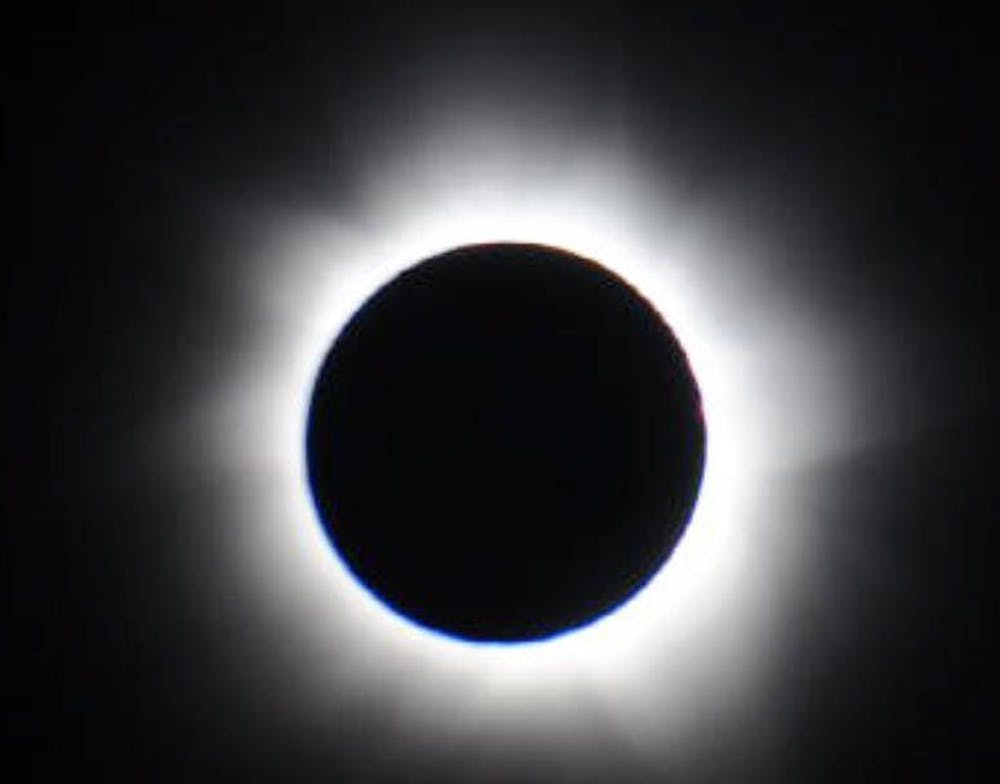Many Americans who look up at the sky Monday will be treated to a rare event as the moon will pass by the sun and block out the sun’s light, causing a total solar eclipse.
Unlike many eclipses, Monday’s eclipse will be visible to a vast majority of the United States.
“It happens somewhere on the earth about twice a year, but the vast majority of the time, it happens over oceans or in places where there are no people,” MSU Department of Physics and Astronomy assistant professor Laura Chomiuk said. “So we’re very lucky that this solar eclipse is going across the entire United States, and so many people are going to get a chance to look at it.”
Chomiuk said that only 20 percent of all solar eclipses are total, making Monday’s event even more of a rarity.
“This is a total solar eclipse, which is pretty rare amongst eclipses already,” Chomiuk said, “It’s going to be total for a long period of time. So it’s going all across the entire United States, and lots of people will get a chance to see it.”
Unfortunately for Michiganders, they will only see a partial eclipse, as just 84 percent of the sun will be blocked out by the moon. If you want to see the eclipse in its entirety, Chomiuk suggests heading to a town along the line of totality. According to Chomiuk, the closest observation point to see the total eclipse for Michiganders is in southern Indiana. But if you aren’t up for the drive, the MSU Observatory is holding a watch party from 1:30-3:30 p.m. on Monday.
Chomiuk said she will travel to Idaho to be on the line of totality during the eclipse, an experience she describes as once-in-a-lifetime.
"The light gets so weird, you've never seen the sky like this before, it's really very special."
MSU Department of Physics and Astronomy professor Megan Donahue said she will be traveling to a small town in Nebraska where she grew up to watch the total eclipse.
Donahue, who has witnessed two total solar eclipses in Libya and China, will get her first chance to see a total eclipse in the United States on Monday.
“I think it’s going to be a huge amount of fun,” Donahue said. “I’ve seen two, but I had to travel a good ways to get there to see them. I don’t study the sun itself, but — even when I was a little kid, I was an enthusiast for astronomy.”
Donahue said that the eclipse will be perceptible to people in the East Lansing area, barring cloud cover, from 1-3:45 p.m., with the partial eclipse peaking at 84 percent coverage of the sun at 2:24 p.m.
MSU Department of Physics and Astronomy professor Edward Brown said that if you do decide to view the eclipse in person, no matter if it is the total eclipse or just partial, you should always use precaution. “I would say if you do want to observe the eclipse, you should check out some webpages on how to safely (observe it),” he said. “The sun will be about 85 percent covered up (in Michigan), but that means that 15 percent of it isn’t covered up, so you do need special equipment. You don’t want to try to look at this directly. That would be very bad for your eyes.”
Brown advises the use of eclipse glasses, which can be purchased online. You can also create homemade viewing devices with objects that are commonly found around your house, such as a colander.
If you are in Michigan and want to see the total eclipse, a livestream will be available on behalf of NASA.
The Lansing Lugnuts are also playing a baseball game during the eclipse and will offer free eclipse glasses to the first 1,000 fans.
If you aren’t able to watch Monday’s total eclipse, the next one is scheduled to take place on Apr. 8, 2024, which Chomiuk said is a relatively short period of time between total eclipses.
Support student media!
Please consider donating to The State News and help fund the future of journalism.
Discussion
Share and discuss “How and where to view the solar eclipse in East Lansing” on social media.







